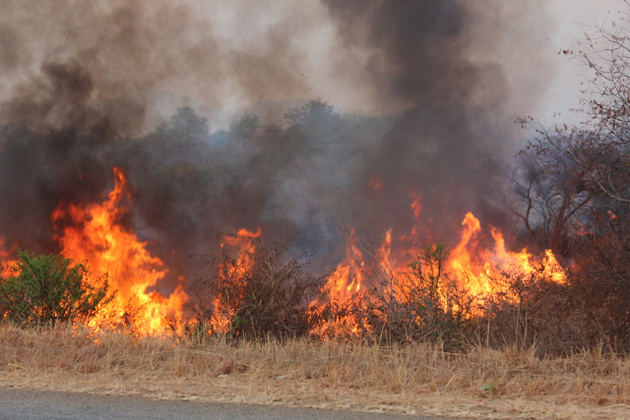‘Biotechnology can drive Zim-Asset’
Sifelani Tsiko Senior Writer
ZIMBABWE’s five-year economic blueprint, Zim-Asset needs to integrate biosafety and biotechnology mechanisms to improve livelihoods and spur the desired economic growth levels, Higher and Tertiary Education, Science and Technology Development Minister Professor Jonathan Moyo says.
In a speech read on his behalf by Dr Machivenyika Mapuranga, at a one- day consultative workshop on the Third National Report on The Implementation of The Cartagena Protocol on Biosafety in Harare on Tuesday, Prof Moyo said issues concerning biosafety and biotechnology must be integrated to drive Zim-Asset forward.
“Issues concerning biosafety and biotechnology must be integrated in driving the Zim-Asset.
“Zim-Asset speaks to the need to achieve sustainable development and social equality anchored on indigenisation, empowerment and employment creation.
“It empowers people to attain household food and nutritional security because every citizen has a right to a healthy and safe quality life.”
The NBA, with the support of the United Nations Environment Programme, held the consultative workshop on the Third National Report to review and validate the implementation of the Cartagena Protocol on Biosafety (CPB) in Zimbabwe.
The report will be published on the Biosafety Clearing House (BCH) country page for Zimbabwe after finalisation and ahead of the Paris Climate Change Conference in December.
The Cartagena Protocol on Biosafety to the Convention on Biological Diversity (CBD) was adopted by the Conference of the Parties to the Convention on January 29, 2000.
Zimbabwe domesticated the Protocol through the NBA Act of 2006 with the support of the Global Environment Fund.
The Cartagena Protocol is an international agreement on biosafety, as a supplement to the CBD.
The Biosafety Protocol seeks to protect biological diversity from the potential risks posed by genetically modified organisms (GMOs) resulting from modern biotechnology.
“We are all concerned with this report in one way or another,” Prof Moyo said.
“A comprehensive report calls for input from each and every one of us here present. It is my hope that all our contributions will add value to our national biosafety report.”
Biosafety refers to the protection of human and animal health and the environment from the possible effects of products of biotechnology.
It allows any economy to take advantage of the opportunities presented by breakthroughs in science technology and innovations such as biotechnology, whilst taking into account any associated risks and concerns.
Zimbabwe is a party to both the CBD and the CPB and to date, it has managed to submit three national reports.










Comments